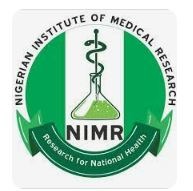The Nigerian Institute of Medical Research, NIMR, has called for heightened vigilance, screening in febrile patients, and increased funding to combat the growing threat of emerging and re-emerging infectious diseases, particularly viral hemorrhagic fevers (VHFs) and drug-resistant tuberculosis (TB).
Researchers at the institute are making significant strides in understanding and addressing these health challenges, but they face significant hurdles, including limited funding and unreliable power supply.
Addressing journalists during the August monthly briefing organised by the institute, a Medical Virologist at NIMR, Professor Rosemary Audu, highlighted the prevalence of VHFs in Nigeria, emphasising that these diseases are often misdiagnosed as malaria or Lassa fever.
She said: “To better address these diseases, there is a need for improved diagnostics, vaccines, and treatments. Additionally, enhancing surveillance systems is crucial for effective control and management.”She further disclosed that her research has revealed a concerning presence of dengue fever, Zika virus, yellow fever, and other VHFs, underscoring the need for broader diagnostic screening beyond malaria. “Our health workers should have a high index of suspicion,” Audu urged. “Beyond malaria, beyond Lassa, we have other viruses circulating.”
She stressed the importance of early diagnosis and urged individuals to seek medical attention if fever persists beyond two days of self-treatment.
Audu also addressed the critical issue of misinformation surrounding vaccines, affirming their safety and efficacy.
She noted that NIMR’s social scientists are actively working to combat vaccine hesitancy.
Speaking on TB findings, a Research Fellow at NIMR, Dr Chioma Kunle-Ope also called for increased attention to re-emerging diseases. She explained that drug-resistant TB poses a significant challenge, requiring longer and more complex treatment regimens.
“NIMR is at the forefront of TB research, utilising genomics to improve diagnostic tools and address the problem of drug resistance. TB is treatable, curable and preventable, but when it moves to drug-resistant TB, the treatment becomes complicated,” Kunle-Ope explained.
Speaking, the Director-General of NIMR, Professor John Obafunwa, acknowledged the significant progress made by researchers but emphasised the urgent need for sustainable funding.
Obafunwa explained that the institute’s ability to develop diagnostic tools and conduct crucial research is hampered by financial constraints and the constant threat of power outages.
“You cannot afford to spend so much money on your reagents only for them to go down the drain because of power supplies,” Obafunwa lamented.
He appealed for government and private sector support to address these challenges and ensure that NIMR can continue its vital work.
The researchers further stated that NIMR’s research underscored the interconnectedness of global health and the importance of investing in local research capacity.
“The world is a global village. The institute’s findings provide critical insights into the complex landscape of infectious diseases in Nigeria and offer a roadmap for improved diagnostics, treatment, and public health interventions.”
They further noted that with increased funding and infrastructure support, the institute would help to safeguard the nation’s health and prevent future outbreaks.

